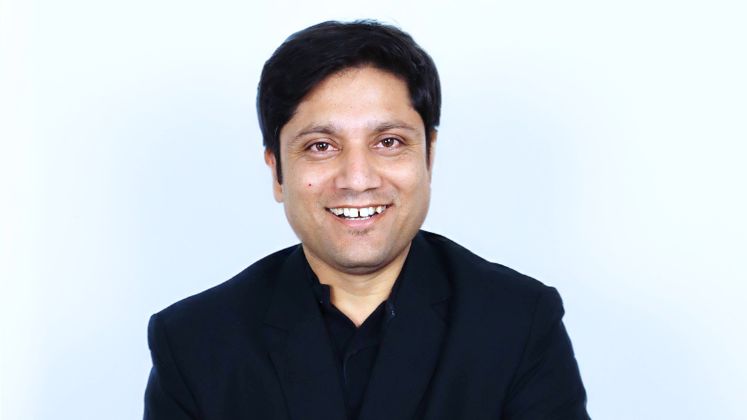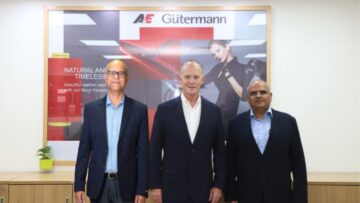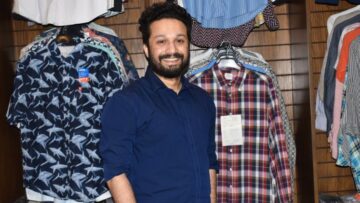
While the global apparel manufacturing and sourcing market is valued in trillions, it’s bogged down by several inefficiencies including outdated machinery, untrained labour, access to latest technology, rising inputs, inefficient supply chain management and inconsistent quality control cost, to name a few.
ZYOD – a B2B marketplace that offers end-to-end, design-to-delivery solutions for brands – sees an opportunity to thrive amidst these challenges. By tapping into diverse market needs, the start-up aims to capitalise on the rising demand for flexible supply chains, low Minimum Order Quantities (MOQs) and fast turnaround times.
Since starting in January 2023, ZYOD has expanded to 18 countries, working with over 350 brands globally, while reaching an annual GMV of US $ 18 million. Some of its clients include Reliance, FirstCry, Rare Rabbit, Anthropologie, NEXT, Boohoo, Landmark Group, Joop & Gypsy, Aminas Collection, Cactus Rose, Ancestry, Tata Cliq, Allen Cooper, TIGC, Libas, Covers Story, Muse and Payal Singhal, amongst others.
Before taking on the leadership role at ZYOD, Ritesh founded successful brands such as YUFTA and FASHINZA – the latter now being a competitor of ZYOD.
In June, ZYOD raised US $ 18 million in Series A funding in a mix of equity and debt funding. The funding was led by venture firm RTP Global, while the debt capital was raised from Stride Ventures, Trifecta Capital and Alteria Capital. Last year too, ZYOD raised US $ 3.5 million in seed funding from Lightspeed India and other investors.
“The funds are being utilised to enhance our technology infrastructure, expand our manufacturing capabilities and scale our operations to new markets. A significant portion is allocated to developing our AI-driven fashion forecasting tools and ERP systems, as well as training and integrating local SMEs into our supply chain,” stated Ritesh Khandelwal, Co-founder, ZYOD.
In an exclusive interview with Apparel Resources, Ritesh discussed the value ZYOD offers to fashion brands, how the company ensures efficiency and quick turnaround times in its operations, its strategies for raising funds and more.
AR: What edge do you give to brands and how do you ensure efficient and timely product delivery?
RK: ZYOD distinguishes itself as a tech-enabled manufacturing platform that integrates AI-driven fashion forecasting, just-in-time production and ERP systems for real-time tracking. With features like style curation, job work and quick purchase order creation, the platform simplifies complex processes. Our flexible MOQs enable brands to test the market with smaller batches, minimising overproduction and waste. We optimised production processes by leveraging a network of 350+ SMEs ensuring cost efficiency without compromising on quality.
When we begin the process of onboarding partner companies, we typically focus on three key aspects. First, we assess the types of fabrics and designs they currently use. This helps us understand their production capabilities, including the kind of sampling they’ve completed and the categories they specialise in such as men’s or women’s apparel.
Next, we evaluate how much technology can be integrated into the factory. While some factories are quite large, our technology may not always align with their existing production processes. On the contrary, smaller factories might lack the capacity to adopt new technology. Sometimes, there may even be a mindset barrier to embracing technological change. We consider this carefully because the success of our model relies heavily on effective technology implementation. A particular focus for us is on our proprietary ERP technology, which helps identify any production gaps. Given that we work with around 2,000 machines, it’s essential to ensure that output is standardised across the board.
The third most important aspect we focus on is sustainability. We strongly believe that factories should operate in an environmentally responsible manner. To ensure this, we review various certifications and compliance measures, including fire safety norms, labour standards and overall infrastructure. For us, it’s essential that every factory demonstrates two key attributes: intent and capability.
Following this, selected SMEs receive training on ZYOD’s operational standards and start with a pilot project. Successful integration grants them full access to ZYOD’s supply chain and technology platforms. We also conduct regular audits to ensure compliance and continuous improvement. Moreover, we’ve partnered with 25 suppliers across India to ensure a steady and reliable source of fabrics. Currently, our SMEs are strategically located in the Delhi-NCR region and Jaipur and our turnaround time is consistently under six weeks.
AR: What cutting-edge tech, AI and tools are you using?
RK: Our units are equipped with the latest machinery and technology, including AI-driven design tools and advanced ERP systems. Our in-house AI algorithms, designed from social signals and retail signals, drive fashion forecasting by analysing extensive datasets to predict trends accurately. These insights guide our designers and demand points of contact (POCs). Our ERP system offers real-time tracking and transparency throughout the production cycle. We utilise automated cutting and sewing machines, digital pattern-making tools and 3D printing for rapid prototyping. Every product, from cut pieces to finished garments, is QR-coded or RFID-tagged, enabling quality control managers to perform inspections simply by scanning the code. This approach allows us to identify and address issues early in the process.
We also maintain 100 per cent real-time data through our DSR/DPR system (Demand Signal Repository/Detailed Project Report), which tracks every detail – from fabric orders and cutting to stitching, finishing and beyond, including any data revisions.
And earlier this year, we launched a mobile app for both iOS and Android! It lets users browse styles, place orders and track deliveries while on the go. While we give huge importance to technology, equally crucial to us is data privacy and security. We have access controls, regular audits and stick to industry-standard security measures, including continuous testing. Our equipment is compliant with GDPR (General Data Protection Regulation) and CCPA (California Consumer Privacy Act), safeguarding proprietary designs with secure storage and anonymisation.
| Our ERP system offers real-time tracking and transparency throughout the production cycle. We utilise automated cutting and sewing machines, digital pattern-making tools and 3D printing for rapid prototyping. |
AR: Could you elaborate on your design process?
RK: Our offerings are based on two key components: ODM, which is our in-house service and OEM, where we utilise our Tech Pack. For our OEM services, we have a design hub that includes a stock of designs. We own this hub where we also conduct research and development, as this cannot be done on the factory floor.
As a design-to-delivery platform, we handle most of the processes ourselves. Occasionally, buyers provide us with Tech Pack specifications and request that we create products based on their trend book for designs. We have a wide variety of designs in our system and can offer those that best suit their needs. Sometimes, buyers may only ask for a sample and we are happy to create and provide that for them.
AR: The Indian start-up scene is struggling to raise capital. What strategies can fashion start-ups use to effectively secure funding in tough situations?
RK: Fashion start-ups can definitely tackle tough fundraising situations by honing a clear value proposition. It’s all about showing that there’s real market demand and having a scalable business model to back it up. I find that building a strong story around sustainability and ethical practices can really draw in impact investors. Plus, using data to highlight our growth potential and keeping our finances transparent are super important.
Networking with industry experts and hitting up start-up events can open doors too. Don’t forget about alternative funding sources like crowdfunding—that can be a great way to raise capital.
Ensuring strict financial control and doing regular audits after securing funding is equally important. We set clear milestones and KPIs to track our progress and make sure we’re aligned with our strategic goals. Keeping our investors in the loop with detailed reporting and transparency helps us stay accountable.
Thanks to our ERP system, we get real-time insights into our spending. We also hold regular board meetings and reviews to ensure we’re on track and are using our funds effectively to fuel
growth and innovation.
AR: What are your expansion plans?
RK: ZYOD is set to expand its operations to over 40 countries, leveraging our scalable technology platform and vast network of SMEs. As we grow globally, we remain committed to introducing 100,000 styles monthly while maintaining consistent quality and efficiency. Our aim is to target underserved markets such as Africa and South America, alongside strengthening relationships in established regions like Japan, the Middle East and the United States. Looking ahead, we also plan to expand to Bengaluru, Ludhiana and Tirupur to build an even more diverse and decentralised manufacturing network.






